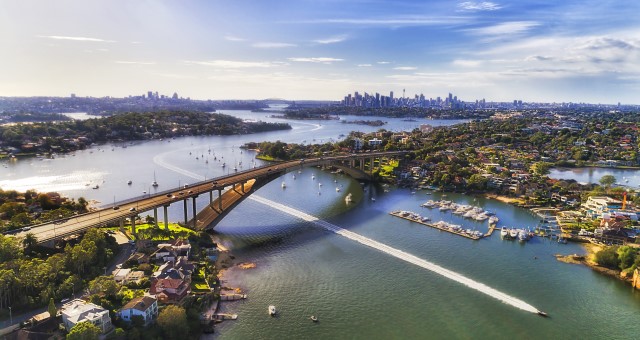Independent management company, Trilogy Hotels is calling for greater investment in Western Sydney to support the influx of visitors expected to the region on completion of the Western Sydney International Airport in 2026.
Despite being the third largest economy in Australia behind the Sydney CBD and Melbourne, Western Sydney fails to compete on its number of hotels, with only 8,764 hotel rooms across 113 properties, compared to over 26,000 rooms in Sydney’s city centre and 5,000 rooms at Sydney Airport alone, according to 2024 STR data.
Trilogy Hotels CEO Scott Boyes believes the airport – which is expected to welcome 10 million passengers per year by 2031 – should become a catalyst for a broader tourism vision for Western Sydney.
“While hotels and rooms need to be built, the economic sustainability of these developments is crucial here,” said Boyes.
“We need to map out the existing tourism offerings, identify gaps, and develop a range of facilities to enhance the overall visitor experience.
“That way, when people land at the airport, they have a legitimate reason to stay in Western Sydney and not head straight into our wonderful CBD because of an absence of knowledge, choice or things to do.
“We need to extend the vision for Sydney beyond the harbour and reimagine Sydney’s tourism offering, including a built-for-purpose Western Sydney. This is the jewel in the crown.”
Boyes said the government risks missing an opportunity if the focus is solely on land purchase.
“Learning from the 2000 Sydney Olympics, post-the games there was no real curation of visitor experiences in what a world-class event precinct is,” he added.
“It then struggled for relevance and acceptance with locals and visitors alike. We must carefully plan how people will interact with Western Sydney’s new infrastructure, and what they will see, do and feel.
“This means developing sustainable demand drivers beyond the airport, curating a positive visitor experience, and ensuring clear directions and attractions to make Western Sydney a compelling destination.”
Trilogy Hotels Executive Chair Tony Ryan added: “High construction and land costs are challenging the feasibility of new tourism products, and there is an opportunity for state and local governments to incentivise these projects through prescribed land uses and development enhancements.”
While thousands of new jobs will be created, Trilogy executives say there is not enough skilled people to fill them.
“The pandemic severely impacted the hospitality industry’s workforce, so planning for the future workforce is also key,” Boyes said.
Trilogy Hotels COO, Grant Alchin, says there is “a pressing need to better align the path from school to careers in hotel and hospitality management”.
“With great tourism products and a great tourism precinct, Western Sydney provides an opportunity for the next generation who live in the region to not have to jump on the M4 to go and work in great hotels and restaurants in Sydney because they’re on their doorstep, in their community,” he said.
Trilogy Hotels is advocating with state bodies and local councils to ensure hotels, hospitality and accommodation play an important part in the social infrastructure in Western Sydney.
“As a team, we have a great deal of experience in Western Sydney,” Ryan said.
“We are great believers in the Western Sydney story; for us, it’s personal, and we take our role in helping lead the way very seriously.
“We see the region as a growth engine not only for NSW but for Australia.”
Western Sydney Leadership Dialogue Founder and Chairman, Christopher Brown AM, praised Trilogy Hotels for speaking up on the issues in the region.
“The growing tourism sector in Western Sydney needs more passionate and professional voices like Trilogy Hotels to ensure supply side and regulatory issues are addressed to ensure communities west of Olympic Park can experience the massive dividends coming Sydney’s way with the opening of the new airport in 2026,” he said.
“Tony Ryan, Scott Boyes, and Grant Alchin have been passionate advocates for this sector for decades, and their invested interest in Western Sydney bodes very well for the region and this industry.”

